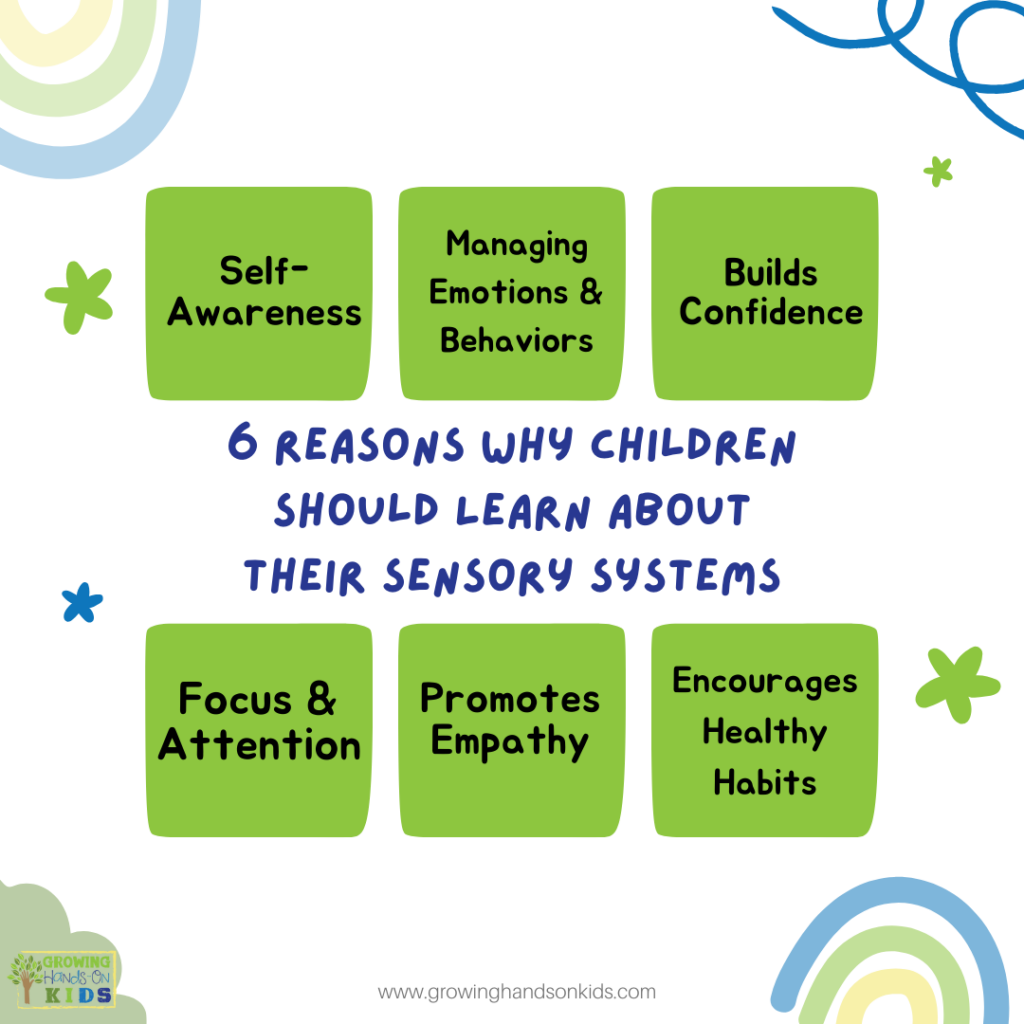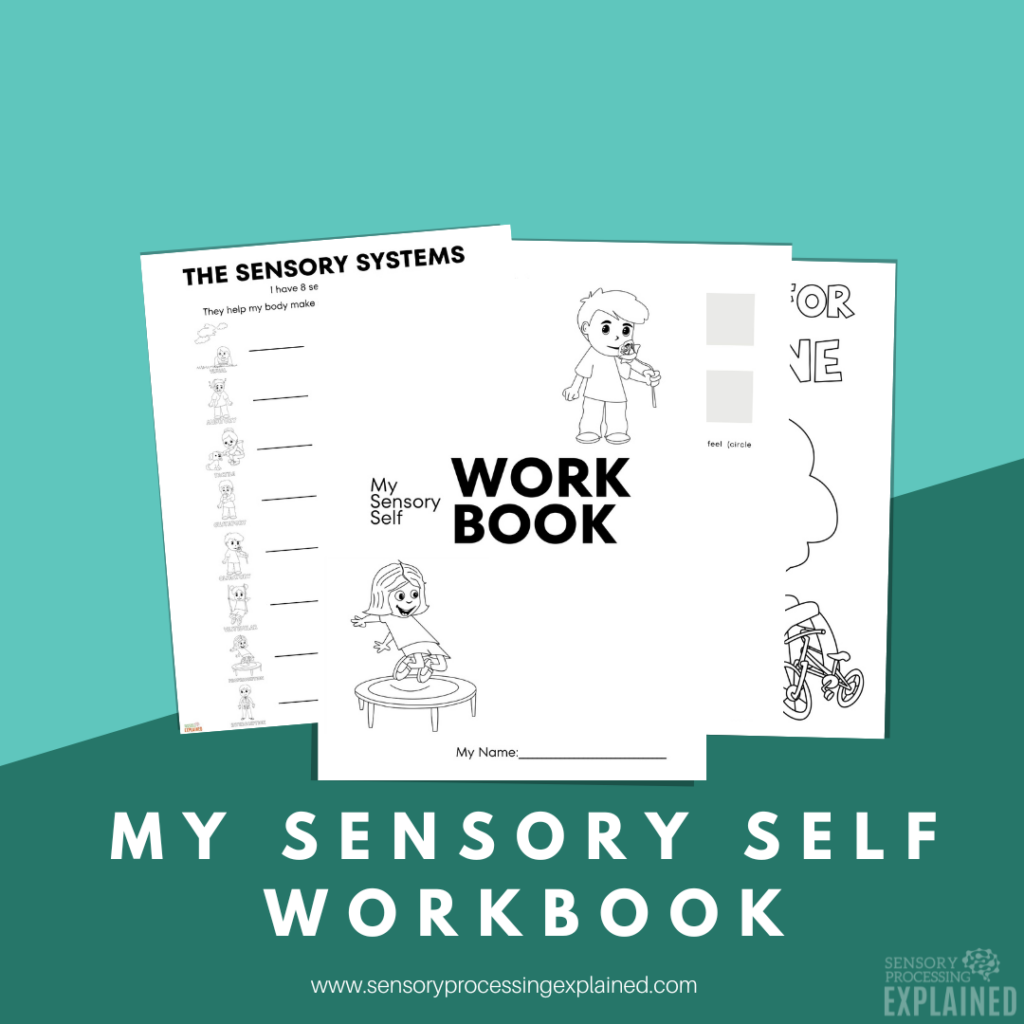6 Reasons Why Children Should Learn About Their Sensory Systems
Affiliate and Referral links are used below to promote products I love and recommend. I receive a commission on any purchases made through these links. Please see my disclosure policy for more details. As an Amazon Associate, I earn from qualifying purchases.
It might seem basic, but there are some very important reasons why children should learn about the sensory systems and how sensory processing works. And more than just the basic 5 they learn about in preschool or Kindergarten.
Today I am sharing 6 reasons why children should learn about their sensory systems. Don't worry, if you aren't quite sure how to do that, I've got you covered with some great resources for teaching about the sensory systems.
Imagine not knowing WHY you are feeling a certain way in your body. It can cause a lot of anxious thoughts and uncertainty. This is why it is so important for children to know HOW their bodies work.
Understanding their sensory systems helps kids in several important ways:
1. Self-Awareness
- Understanding Their Bodies: When children understand how their sensory systems work, they become more aware of their bodies and how they experience the world. This awareness helps them understand why they feel a certain way, like why they might feel dizzy after spinning or why certain fabrics feel uncomfortable. Or why certain foods taste good to them and not someone else.
2. Managing Emotions and Behaviors
- Coping with Overwhelm: Some children might feel overwhelmed by certain sensory experiences, like loud noises, bright lights, or textures. Understanding their sensory systems helps them recognize these feelings and find ways to self-regulate, like using fidgets, taking a break in a sensory corner, or wearing sunglasses in a bright area.
- Expressing Their Needs: When children understand their sensory systems, they can express their needs to others. For example, if a child knows they get overwhelmed in a noisy area, they can ask for headphones or take a quiet break.
3. Builds Confidence
- Improving Skills: Knowing how their sensory systems work can help children develop skills like emotional regulation, exercises to improve their balance, or ways they can improve their focus in the classroom.
- Feeling in Control: When children understand their sensory systems, they feel more in control of their reactions and behaviors. This can boost their confidence and help them handle new situations with strategies that will work for them.
4. Focus and Attention
- Better Focus: Some sensory experiences can help children focus, like chewing gum while doing homework or squeezing a stress ball. Understanding this can help them find the sensory tools and strategies that work best for them.
- Adapting Environments: Children who understand their sensory systems can advocate to make their learning environments more comfortable. For instance, they might choose to sit in a quieter spot in the classroom if they know they’re sensitive to noise. Or they can ask for a movement break before a quiz or test.
5. Promotes Empathy
- Understanding Others: When children learn about sensory systems, they have a better understanding that everyone experiences the world differently. Realizing this can help them be more supportive of friends who might have different sensory sensitivities or challenges.
6. Encourages Healthy Habits
- Listening to Their Bodies: Children who understand their interoceptive system specifically are better at listening to their bodies’ signals, like knowing when to eat, drink, or rest. This can lead to healthier habits and overall well-being.
- 10 Interception Activities & Strategies for Kids
Helping children understand their sensory systems gives them the knowledge to navigate the world around them more comfortably and confidently. It also empowers them to make choices that support their well-being and gives them a better understanding of themselves and others.
Looking for some ways to help teach children about their sensory systems?
I co-wrote this guide, My Sensory Self Workbook, with my friend Sharla at our site, Sensory Processing Explained.
Help your child or student discover what their eight sensory systems feel like and what their sensory preferences and dislikes are with this fun and engaging workbook. Includes eight coloring pages, one of each sensory system, a short description of each sensory system that a child can understand, plus two pages to think through their sensory preferences and dislikes.
More Resources for Teaching Children About Sensory Processing

Heather Greutman, COTA
Heather Greutman is a Certified Occupational Therapy Assistant with experience in school-based OT services for preschool through high school. She uses her background to share child development tips, tools, and strategies for parents, educators, and therapists. She is the author of many ebooks including The Basics of Fine Motor Skills, and Basics of Pre-Writing Skills, and co-author of Sensory Processing Explained: A Handbook for Parents and Educators.


